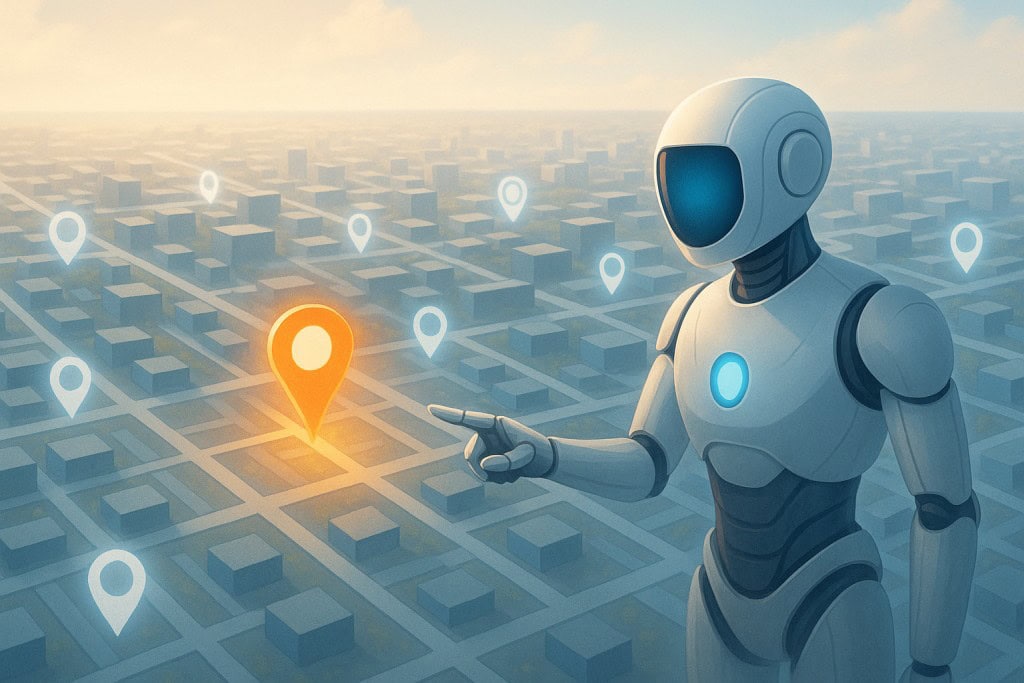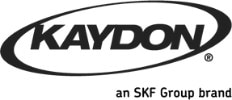
Using AI for Personalized Marketing and Business Growth
Key Takeaways
- AI can revolutionize the way we understand and interact with customers by analyzing vast amounts of data to create comprehensive user profiles.
- Companies can use AI to implement dynamic content personalization, tailoring website experiences, and email campaigns to individual users.
- AI-powered chatbots and virtual assistants are essential tools in providing personalized customer support and guidance.
- Using AI the smart way to personalize marketing leads to improved user engagement, conversion rates, and customer loyalty.
Artificial Intelligence (AI) has become a transformative force in business, reshaping entire industries and significantly enhancing marketing strategies. By leveraging AI, marketers can utilize detailed data to create highly personalized marketing efforts, providing a customer experience that feels tailor-made. In this post, we will delve into how companies can harness AI for data-driven personalization, using it as a powerful tool to analyze customer behavior, adapt content, and provide personalized customer support. By strategically using AI, businesses can revolutionize their marketing approach, driving unprecedented growth and deepening customer engagement.
Harnessing AI for Data-Driven Personalization
Artificial Intelligence (AI) has the power to transform vast amounts of data into actionable insights. Through the collection and analysis of customer demographics, behavior patterns, and preferences, AI can create comprehensive user profiles. This ability to process and derive insights from large datasets allows businesses to understand their customers at a granular level. Consequently, the deployment of AI algorithms helps companies identify patterns, predict customer needs and create highly targeted marketing strategies.
One of the most significant advantages of using AI the smart way to personalize marketing is its ability to implement dynamic content personalization. AI algorithms can analyze user behavior and preferences in real-time, enabling businesses to adapt content, product recommendations, and offers instantaneously. By presenting relevant and engaging content, companies can significantly improve user engagement, conversion rates, and customer loyalty.
Another innovative application of AI in marketing is the use of AI-powered chatbots and virtual assistants. These tools can engage with customers 24/7, answering queries, providing recommendations, and guiding them through the sales process. By learning from customer interactions, AI-powered chatbots can continually improve their responses and provide more accurate and helpful support. This level of personalization in customer support is not only beneficial for customers but also allows businesses to gather valuable data and insights.
Clearly, AI has revolutionized the way businesses understand and interact with their customers. By leveraging AI for data-driven personalization, businesses can create a highly personalized customer experience, leading to improved user engagement and loyalty.
Enhancing Customer Engagement with AI
Engaging customers effectively is the bedrock of a successful marketing strategy. With AI, businesses can take their customer engagement to the next level. AI-driven sentiment analysis, predictive analytics, and personalized marketing campaigns are just a few ways businesses can leverage AI to boost their customer engagement.
Utilize AI-Driven Sentiment Analysis
Understanding how customers feel about your products or services is crucial. By utilizing AI-driven sentiment analysis, businesses can monitor and respond to customer feedback across various channels including reviews, social media posts, and support interactions. AI can identify common issues, gauge customer satisfaction, and help businesses address concerns proactively. This real-time feedback allows companies to improve their products and services swiftly, fostering a customer-centric approach that is vital in today’s competitive market landscape.
Implement AI-Powered Predictive Analytics
Anticipating customer needs and preferences can give businesses a significant competitive edge. By implementing AI-powered predictive analytics, businesses can analyze historical data and customer behavior to predict future trends, product demand, and customer churn. This enables businesses to engage with customers proactively, offering relevant products, services, or incentives at the right time. The result? Increased customer retention and lifetime value, two key metrics in any successful business strategy.
Personalize Marketing Campaigns and Product Recommendations
Personalization is no longer a luxury; it’s a necessity. Customers expect experiences tailored to their unique needs and preferences. AI algorithms can analyze customer data to identify patterns and preferences, enabling businesses to create highly targeted marketing campaigns. Furthermore, AI can recommend products or services that align with individual customer interests. This level of personalization can significantly increase conversion rates and foster long-term customer loyalty, making AI a powerful tool in enhancing customer engagement.
Using AI the smart way to personalize marketing is more than just a trend; it’s a game-changer that can redefine the way businesses interact with their customers. By leveraging AI, businesses can provide a highly personalized, engaging customer experience that drives growth and success.
Optimizing Marketing Strategies with AI
The effectiveness of your marketing strategies can make or break your business. With AI, you can optimize these strategies and ensure your marketing efforts aren’t going to waste. Let’s delve into the ways AI can enhance your marketing strategies, from AI-driven A/B testing and media buying to marketing automation.
Leverage AI-Driven A/B Testing
A/B testing is a valuable method for determining which version of an ad copy, image, or layout is most effective. Traditional A/B testing can be time-consuming and often requires significant resources. Enter AI. With AI-driven A/B testing, you can automate the testing of different ad variations. AI can identify the most effective combinations for specific target audiences, leading to more impactful marketing campaigns and landing pages. This data-driven approach allows your business to continually refine its marketing strategies, maximizing ROI and minimizing wasted ad spend.
Utilize AI-Powered Media Buying
Getting your message in front of the right audience at the right time is crucial. AI-powered media buying can help. AI algorithms can analyze vast amounts of data to identify the most effective channels, platforms, and ad placements for specific target audiences. By optimizing ad spend and targeting, your business can reach its ideal customers more efficiently, improving campaign performance and reducing customer acquisition costs. This is an excellent example of using AI the smart way to personalize marketing.
Implement AI-Driven Marketing Automation
Marketing automation is all about streamlining and personalizing the customer journey. By leveraging AI to analyze customer behavior and preferences, your business can create highly personalized email campaigns, push notifications, and retargeting ads. This level of personalization not only improves customer engagement but also helps to nurture leads and guide them through the sales funnel more effectively. Marketing automation, powered by AI, is about more than just efficiency—it’s about creating a more personalized and engaging experience for your customers.
Whether it’s A/B testing, media buying, or marketing automation, AI offers numerous opportunities to optimize your marketing strategies. By embracing these AI-powered tools and techniques, you can ensure your marketing strategies are as effective as they can be, driving growth and success for your business.
Navigating the Future of AI-Driven Marketing
As we continue to explore the benefits of using AI the smart way to personalize marketing, it’s crucial to keep an eye on the future. As AI technology evolves and its applications in marketing expand, it’s essential to stay informed, foster a data-driven culture, and consider the ethical implications of AI in marketing.
Staying Informed About AI Advancements
AI continues to evolve at a rapid pace, and it’s crucial for businesses to stay up-to-date with new tools, platforms, and best practices. By regularly attending industry conferences, webinars, and workshops, you can stay ahead of the curve and identify new opportunities for AI-driven personalization. This continuous learning will allow you to leverage the latest advancements in AI technology, ensuring that your marketing strategies remain effective and competitive.
Fostering a Data-Driven Culture
To fully leverage AI in marketing, it’s important to foster a data-driven culture within your organization. This involves encouraging collaboration between marketing, data science, and IT teams to ensure a seamless integration of AI technologies into existing marketing processes. Additionally, investing in data infrastructure and talent development can help build a strong foundation for AI-driven personalization and customer engagement.
Considering the Ethical Implications
As AI becomes more prevalent in marketing, it’s essential to address concerns around data privacy, algorithmic bias, and customer consent. The integration of AI into marketing strategies isn’t just changing businesses; it’s also shaping consumer expectations and behaviors. Consumers are becoming accustomed to highly personalized experiences. What happens when AI-driven personalization becomes the norm? Will consumers start expecting this level of personalization in every interaction? By prioritizing transparency, ethical data practices, and clear communication with customers, businesses can build trust and foster long-term relationships in an AI-driven marketing landscape.
In conclusion, as we forge ahead in this era of AI-driven marketing, staying informed about the latest advancements, fostering a data-driven culture, and considering the ethical implications are vital. AI is revolutionizing the way we approach marketing, but it also comes with its own set of challenges. How will your business navigate this new landscape? What steps are you taking to use AI the smart way to personalize marketing?
Author: Melih Oztalay




















